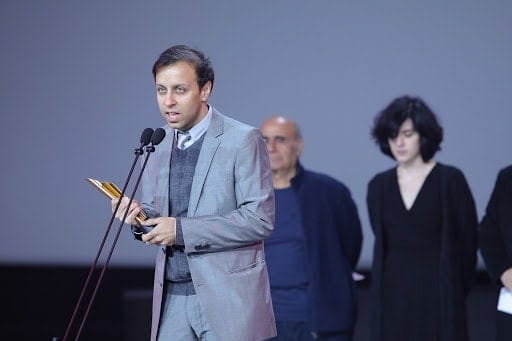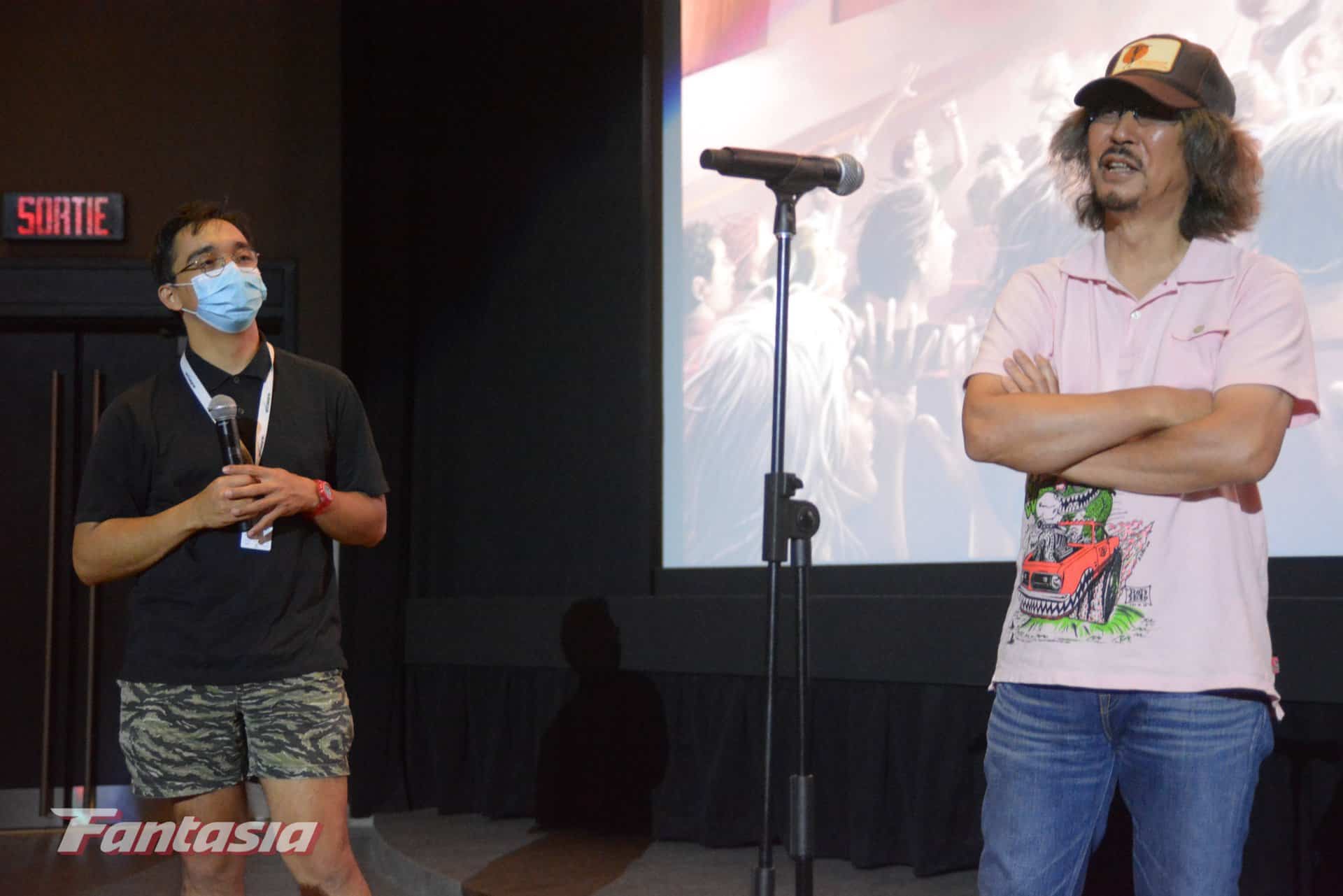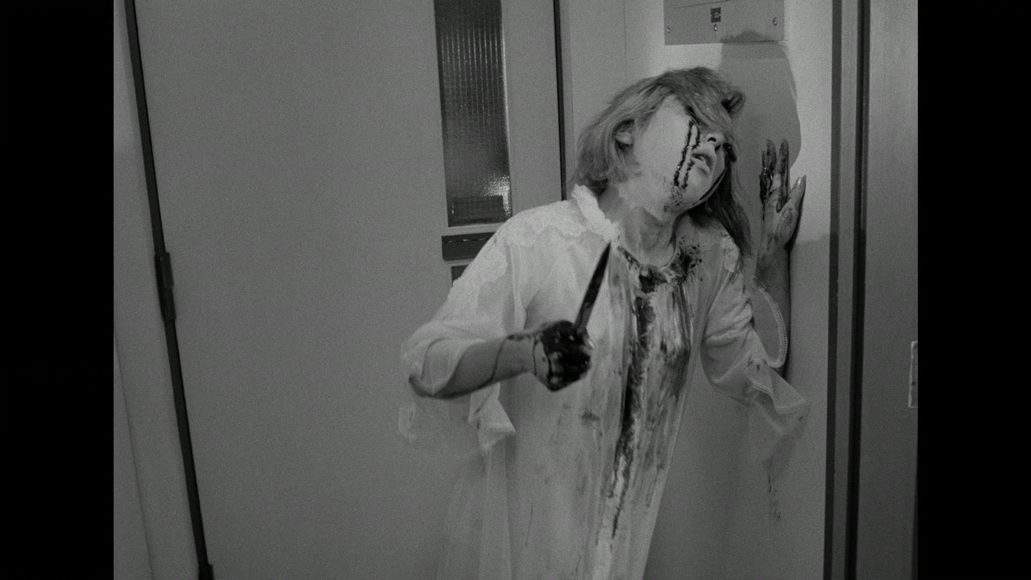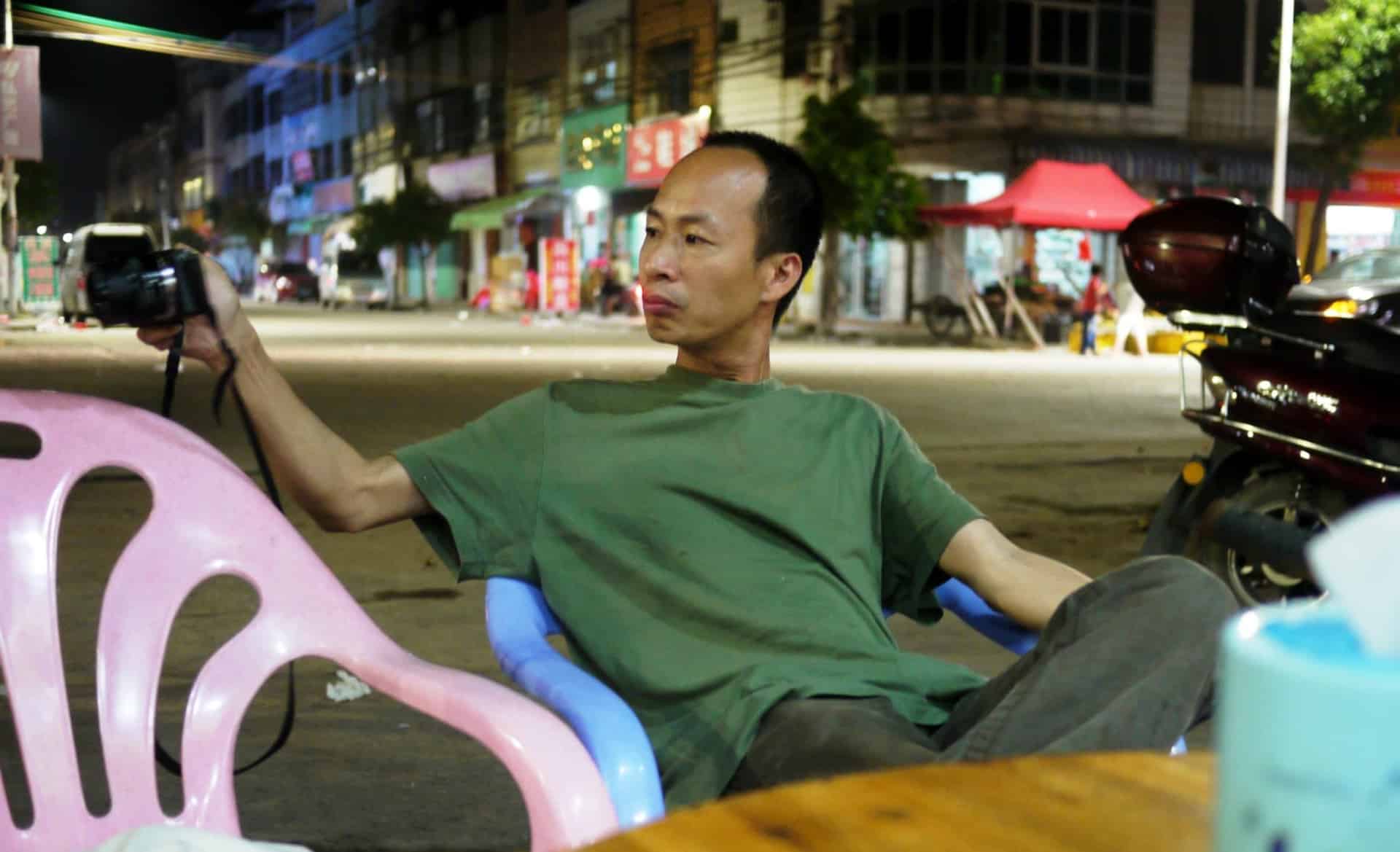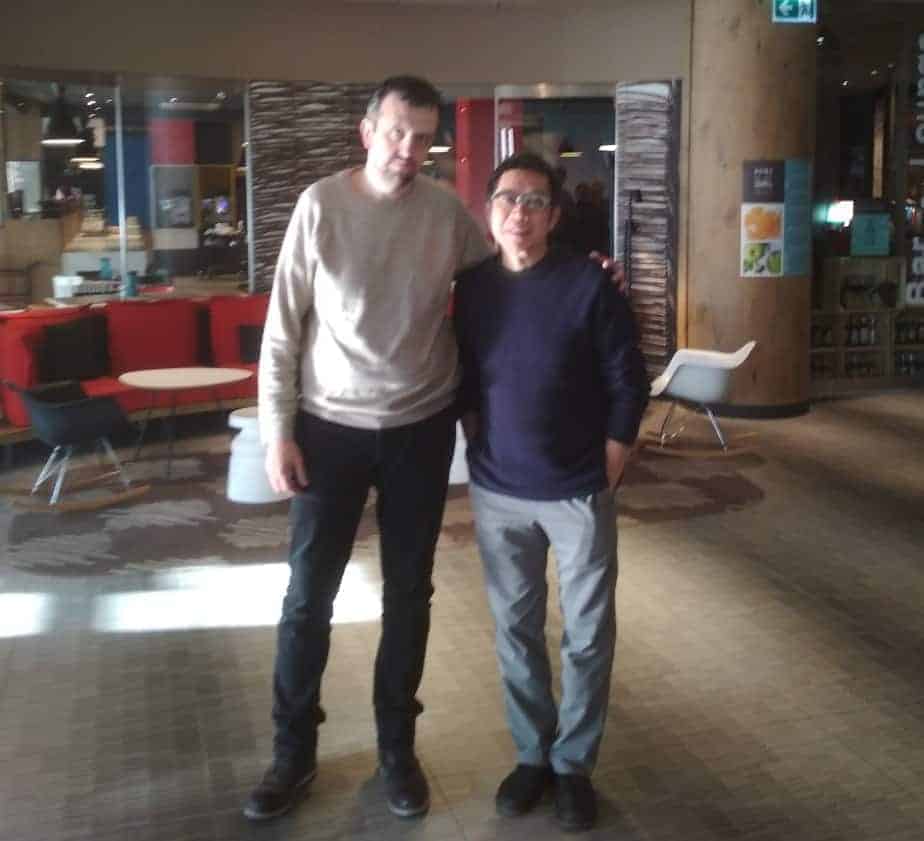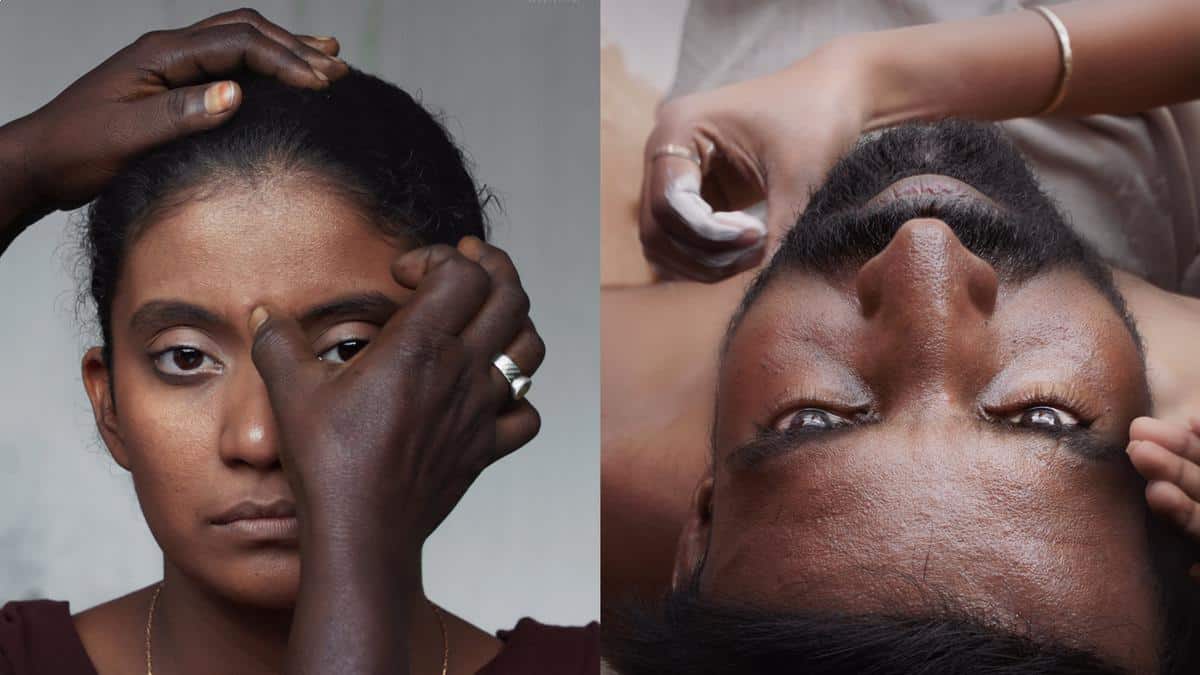Ivan Ayr grew up in northern India. Despite receiving a degree in Electrical Engineering, he pursued postgraduate studies in the United States in English literature as well as screenwriting and directing. At the San Francisco Film Society he wrote and directed his first short film “Lost and Found” (2014). His second short, “Quest for a Different Outcome” (2015) won Best Short Film at San Jose International Short Film Festival. Soni is Ayr's feature directorial debut and was one of the five films selected by India's National Film Development Corporation to be part of the prestigious ‘Work in Progress' Lab at Film Bazaar, where it was mentored by French editor Jacques Comets and veteran festival director Marco Mueller. “Soni“, his feature debut, won a number of awards all over the world, was nominated for the Venice Horizons Award and is now streaming on Netflix.
We speak with him about the story of Soni, his research on female police officers in India, the casting and many other topics.
When I first saw Soni I thought the scriptwriter was a woman. Where did you get the inspiration for such realistic and complex female characters?
The genesis of “Soni” lies in a personal desire to share the humanness that I've experienced in the women I have crossed paths with in my life. As I began writing my first set of notes for “Soni”, I knew that I neither wanted to glorify nor victimize its female characters. There was also a desire to find out how the policewomen of Delhi were reacting to a rising tide of brutal sexual violence that was constantly putting their city under a spotlight of shame. There is no question that a thought crosses their minds everyday that even they, despite their position of power, are susceptible to the same crimes, both on and off duty. Certain events in the story were pieced together from real-life experiences of Delhi's policewomen. Though equally important for me was to portray these events in a manner which highlighted the moral quandaries of certain judgement calls made in the heat of a moment. Mainly as a reminder that before they're women, they are still human beings – intelligent but flawed – searching for answers themselves as they look for a footing in their professional lives.
What was the biggest challenge you faced to get such a project in motion?
I think the biggest challenge for a new filmmaker is to win people's trust.
Did you find it easy to research for your film? Did you get some help from the Police Department?
I started writing my first draft in 2014, with my producer, Kimsi Singh, who's been my sounding board from the start. I was in the United States at the time, and my research on Delhi Police was limited to what I could find on the internet and it was embarrassingly inadequate. So, I flew back to India to meet and spend some time with the Delhi Police personnel, which was made possible by our executive producer in India, Kartikeya Singh. With his help, I travelled to various police stations and check-posts across Delhi and interviewed policemen and policewomen of different ranks. They were all very gracious to honor my request to let me be a fly on the wall while they performed their daily duties. Amongst a certain degree of chaos one can generally expect to find in the police life, I could not help but notice the very sensitive dynamics of the officers' relationship with their peers and superiors, and how hierarchy dominated the equation. Though I exercised my creative liberties in writing the characters, I was drawing much from this knowledge during the course of my second draft. It not only brought to the page elements of accuracy around Police protocol, but profoundly transformed the story.
Soni is a difficult film, addressing lots of real on-going prejudices but it gathered quite a lot of consensus in festivals around the world. How was the film's reception in India?
We got to experience the first set of reactions at the Mumbai film festival (MAMI). It was thrilling and heart-warming to see the appreciation coming from across gender boundaries. It was overwhelming to see so much written about the film, before it was even released for the masses. I didn't really expect much coverage in the mainstream, but I was proven wrong.

Kalpana's gesture of giving Soni the book “Revenue Stamp” by feminist-poet Amrita Pritam has a deep significance. How did you get to know the book and why did you want to make it part of your film?
Amrita Pritam's short stories and poems were (probably still are) part of the high school Punjabi language curriculum in Northern India, where I did my schooling. However, I first came to know of her autobiography, ‘The Revenue Stamp', when I was an student IT assistant to a Punjabi professor, Dr. Atamjit Singh, in the foreign languages department of San Jose State University. Dr. Singh was a well known figure in the Punjabi literary circle and knew Amrita Pritam when she was alive. He recommended me this book, among several others. I find Amrita Pritam and her writings quite visceral, and quietly defiant in the face of oppression and subjugation, which was something I hoped to do in the film. Additionally, I thought it was a good opportunity to revive a forgotten giant of Indian literature in people's minds.
What is your view and personal experience on working with Netflix?
A I didn't actually work with them in any capacity, but I'm glad they distributed the film worldwide and that it has, and will continue to, reach audiences around the world through their platform.
Can you tell us something about the casting of those two terrific actresses, Geetika Vidya Ohlyan and Saloni Batra?
We did not hire a Casting Director. My producer and I entrusted my assistant directors, all of them fresh film-school graduates, with this task, instead of hiring a professional casting director, for the simple reason that I do not believe in a pre-selected pool of actors. I wanted the cast to be from Delhi, for colloquial authenticity in the film. With the exception of the principal cast, our pool entirely consisted of non-actors and part-time actors, who occasionally perform in theatre, but have regular day jobs. A lot of our auditions were self-taped since I was constantly shuttling between India and the US, but it all worked out for the better, since it allowed us to reach a much larger pool of people, and to see how they looked on screen. We found Geetika through one of my assistant directors who happened to be from the same institute where she received her training as a theatre artist. While Saloni Batra's taped audition reached us from Mumbai, but she's originally from Delhi.
Can you talk about your stylistic choice of composing the film as a collage of about 50 tracking long takes?
I wanted to use the single shot as a touch of realism. Letting a situation unfold with an organic fluidity brings out the raw human instincts in actors, to the degree where it blurs the line between performance and just plain human reaction. This element of realism was especially crucial for the scenes inside the police station, where I sort of simulate for the viewer the perspective of a police officer, being subjected to the same situation within the same space and time, unfiltered. For me, the film's social commentary would be ineffective without this holistic representation of its subjects and their milieu. Moreover, the idea of a single shot in a single space capturing multiple viewpoints that were coming at you simultaneously, and often colliding, was very appealing to me philosophically, because c'est la vie!

What is your opinion of Hindi cinema at the moment?
While it's true that mainstream Bollywood has largely been about entertainment, we're doing far better than the mainstream Hollywood factory when it comes to telling stories about real human beings and their struggles and conflict. We should be proud that our cinema has not yet surrendered to superheroes, mutants, zombies, aliens, sequels and prequels. Jokes aside, I think the last decade has seen quite a surge in both films and filmmakers who want to hold a mirror to the society through serious films, and their success goes to show that there is an appetite for arthouse films. And, for a filmmaker like me, that is very encouraging.
Are you working on a new project? If so, will it be an equally socially-concerned film?
I shot my second feature film earlier this year, just before the pandemic hit. I've spent most of the lockdown editing it myself. It doesn't address any one specific social issue, but certainly is socially-concerned in its own way, because it talks about the human existence and the human experience in contemporary society.


